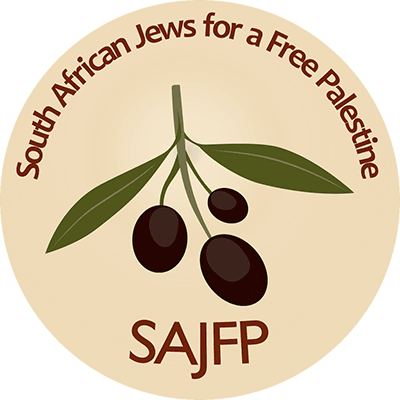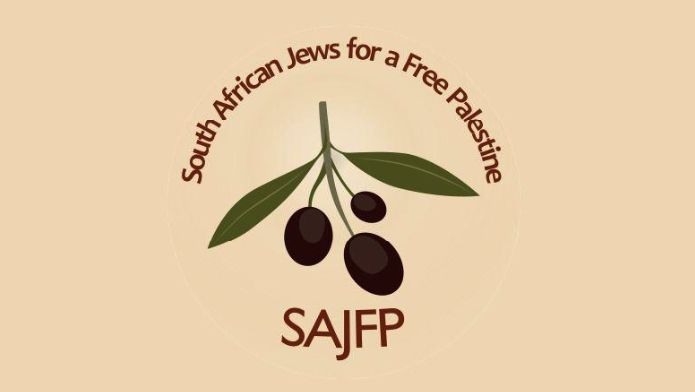South African Jews for a Free Palestine (SAJFP) calls on all States represented at the United Nations General Assembly to vote in support of the draft resolution that has been tabled, which is intended to implement the findings made by the International Court of Justice (ICJ) in its Advisory Opinion on Israel’s policies and practices in the occupied Palestinian territories. In this opinion, Israel was found to be in violation of Article 3 of the International Convention on the Elimination of All Forms of Racial Discrimination, particularly in its continued unlawful presence in the so-called occupied Palestinian territories.
According to the court, Israel is under an obligation to bring this presence to an end ‘as rapidly as possible’ and all States and international organisations, including the United Nations, are under an obligation ‘not to recognize as legal the situation arising from’ Israel’s unlawful presence and ‘not to render aid or assistance in maintaining [it]’. The ICJ further found that the UN – specifically the Security Council and the General Assembly, which requested the opinion – should advise on the exact steps to end Israel’s illegal occupation.
The draft resolution, which will be put to a vote in the 193-member UN General Assembly this week, places a 12-month deadline on Israel’s withdrawal from the occupied Palestinian territories. The resolution further calls for the imposition of trade and military sanctions on Israel; the prevention, prohibition and eradication of Israel’s international law violations as identified in the ICJ’s opinion; and the imposition of sanctions on complicit individuals and entities.
Despite the draft resolution’s limited scope, which has been highlighted by the Palestinian BDS National Committee, it represents an important step towards ending the system of apartheid between the Jordan River and the Mediterranean Sea. Indeed, while UN resolutions did not bring an end to apartheid in South Africa on their own, they played a significant role in placing pressure on States to impose economic, cultural and academic boycotts on the apartheid regime.
From as early as 1 April 1960, the UN Security Council was adopting resolutions that sought to pressure the apartheid government in South Africa to abandon its racist policies, in compliance with international conventions against racism. Many Security Council and General Assembly resolutions were passed in the years that followed, increasingly isolating the apartheid regime from the international community and economy, but it was only on 26 April 1994 that South Africa held its first democratic elections.
The draft resolution represents just one step towards ending the apartheid system in Israel. Freedom and justice for the Palestinian people requires concerted efforts from people around the world, inside and outside of Palestine, to isolate Israel – culturally, politically and economically. In his book Decolonising the Palestinian Mind, Professor Haidar Eid, a Palestinian-South-African author and Associate Professor at Gaza’s al-Aqsa University, writes:
‘As late as 1987, Margaret Thatcher was confident enough to say that “Nelson Mandela would never be the president of a free South Africa”. Like Thatcher’s government, other governments around the world were forced to end their support for apartheid South Africa. They would not have done so without the pressure exerted on them by their own people. Israel needs to be isolated in exactly the same way as apartheid South Africa. Today, there is a growing mass-based struggle inside Palestine, as well as other forms of struggle, exactly as there were inside apartheid South Africa. An intensified international solidarity movement with a common agenda can make the struggle for Palestine resonate in every country in the world, thus closing off the world to Israelis until they open the world to Palestinians.’
Speaking in 1985 in London, also on the topic of the British regime’s refusal to implement sanctions, then Head of the ANC in exile Oliver Reginald Tambo remarked:
‘The argument for sanctions is also one against chaos and destruction. The argument against sanctions, did I say the argument against sanctions? The argument for sanctions is also an argument against chaos and destruction. The argument against sanctions, the failure to impose effective sanctions has inevitably led to the greater obduracy on the part of the apartheid regime, as well as the availability to the regime of the material resources to run the apartheid system and to wage war against our people and the people of southern Africa.’
It is our duty as Jewish South Africans to use the lessons from our history and ethical traditions to fuel and fortify our commitment to a world free from domination, genocide, fascism, all forms of racism, oppression and ethnic cleansing. It is in this spirit that we echo the call by the BDS National Committee to place pressure on all states to support the resolution in the UN General Assembly and call on progressive forces around the world to place pressure on their representatives to vote in favour of ending Israel’s unlawful occupation, settler colonisation and apartheid in Palestine in the context of the ongoing Nakba.

